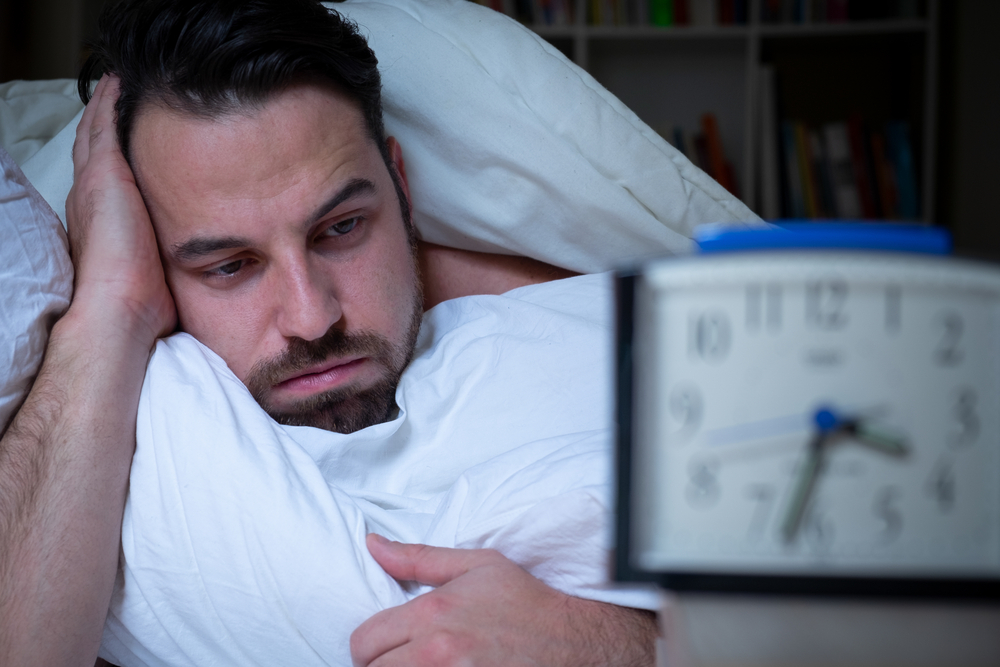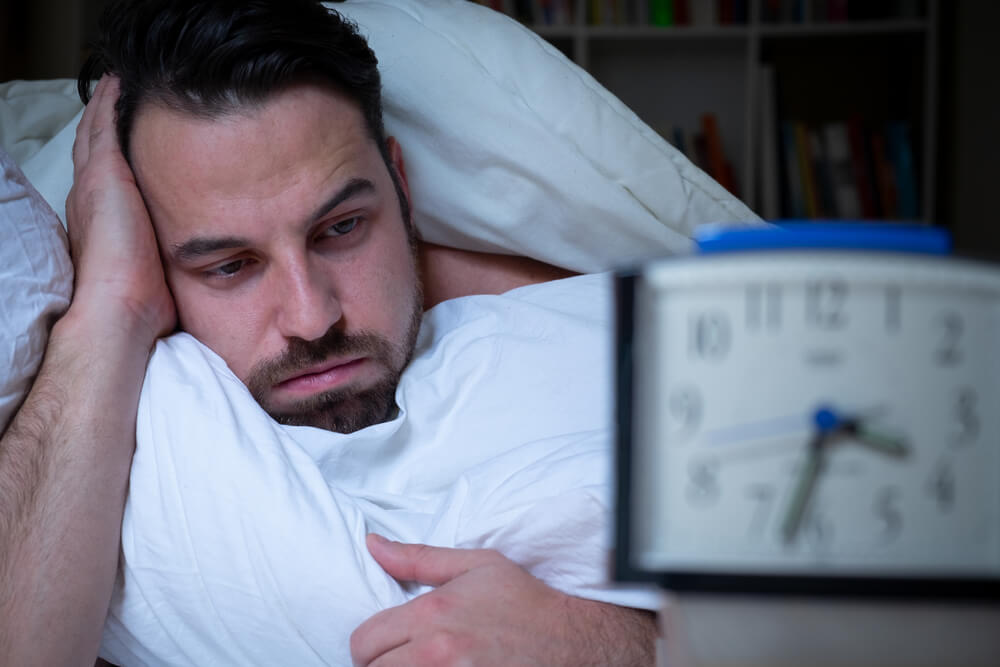How To Sleep Less: Function Better on Less Sleep (Step by Step)

In this age of multitasking, people wish they could sleep less and work more. However, while Leonardo da Vinci could produce high-quality paintings by working overnight, over 97 percent of the population cannot focus if they sleep for less than six hours at night. Sometimes you cannot fall asleep as fast as you should, and in other instances, you might have problems when getting up in the morning.
To function effectively, an adult should have between seven to eight hours of sleep every night. Your body does not shut off when you sleep. On the contrary, your brain undertakes key biological functions when the circadian rhythms get to work.
Your brain embarks on biological maintenance functions that refresh your body and prepare you for the day ahead. If you regularly skimp on maintenance, you are at risk of mental and physical breakdown. But over time, you can train your body to sleep less without compromising your productivity.
1. Discover Your Sleep Schedule
Sleeping patterns are biologically hardwired in your genes. You sleep in three non-REM (rapid eye movement) stages that last for about one to two hours a night. During the stages of NREM sleep, your body repairs the tissues, builds muscles and bones, and strengthens your immune system.
You then enter two stages of REM sleep where the brain stimulates the cognitive functions that help ion learning and brain development. Adults spend 20% of their sleep time in the REM stage, while babies spend more than 50%.
Sleeping patterns change as you age, so you need to understand your schedule for better productivity. If you wake up before the end of a complete sleeping cycle, you will feel exhausted. So, understand your schedule and avoid disruptions when you sleep.
Need Help Sleeping Better? Request our FREE Sleep Hygiene Guide.
2. Shave Off An Hour Of Sleep
While your body needs at least seven hours of sleep, you can shave off an hour over time. If you wake up at 5 o’clock during the weekdays, do so even during the weekends. Then start delaying the time you go to bed by 20 minutes every day for the first week.
Delay it by 40 minutes in the second week and an hour in the third week. Follow this program until you are sleeping 6 hours every night.
3. Tone Your Bedroom Down
Light exposure during bedtime makes it for your brain to produce enough sleep-inducing melatonin. Even if you fall asleep with lights on, you will have difficulties staying asleep as the light will disrupt your (REM) stages. Dim lights can help to turn your bedroom into a cozy and restful environment.
Exposure to light will prevent your body from transitioning onto the deeper sleep levels. If you get shallow sleep at night, the biological functions that take place during the deep levels will be hampered. These include sleep homeostasis (balance between sleeping and waking) and the repair of worn out brain cells.
4. Exercise
You can thrive on less sleep if you are hyperactive during your waking hours. Even if you are a sedentary worker, exercising in the afternoon will raise your body temperature and cool it off by evening. Exercising helps you to fall asleep faster and sleep deeply at night.
Aerobic exercises help to decompress the mind and stabilize your moods. Such exercises support the cognitive processes that help your brain to transition into the deep sleep stages. Six hours of continuous sleep are better than eight hours of waking up between the sleep cycles.
5. Avoid Drinking Coffee
Getting a good night's sleep is critical to your productivity. However, caffeine significantly reduces the total amount of deep sleep that you get. Even if you consume it early in the morning or afternoon, you will still feel the effects of caffeine in the evening.
Consuming a mug of coffee 6 hours before bedtime reduces the total sleep time by one hour. Once caffeine gets to your brain, it inhibits adenosine from binding to the receptors and promotes wakefulness. Caffeine also suppresses the pineal gland from producing sufficient melatonin that promotes deep sleep.
6. Take A Warm Shower
Taking warm baths or showers before bed significantly improves sleep. In various studies, people have reported enjoying a good night's sleep after a bath. A war bath of around 100 degrees Fahrenheit is akin to a sleep aid.
Instead of tossing and turning in bed, schedule a warm bath one hour before bedtime. The warm water allows the body temperature to drop and consequently and supports your circadian processes that promote good sleep.
7. Keep Your Body Hydrated
Since dehydration can make you feel exhausted, irritable, and sluggish, a cup of water can determine how well you sleep. Understanding the importance of daily water intake on your slumber will make a huge impact when it comes to improving the overall quality of your sleep.
According to research by Penn State University, the correlation between hydration and sleep quality comes down to a hormone called vasopressin. A glass or two of water supports the production of vasopressin that your brain releases in all stages of the sleep cycle. The hormone supports the transition from one state to another without disruptions.
8. Change Your Lifestyle
It’s possible to get quality sleep if you change your lifestyle. You can promote good sleeping patterns by healthy snacking at two-hour intervals to prevent you from taking heavy meals in the evening. Light meals can pack your body with energy and are easy to digest.
Avoiding stressful situations and trying to relax before bedtime can help you to sleep better. However, unhealthy routines and habits related to food, drink, and lifestyle can increase your risk of insomnia. For example:
- Keeping the brain highly agitated in the evening by playing video games.
- Napping in the afternoons can make it hard to fall asleep at night.
- Eating heavy meals before bedtime can make you feel bloated.
- Heavy meals can cause obesity that leads to sleep apnea when the airways get blocked.
Sleep Less But Feel Refreshed
Our society admires people who sleep less and work more. However, when you add productivity into the equation, you realize that failing to get enough sleep can be counterproductive.
But if you have so much on your plate and less time to accomplish it, you can train your brain to replenish itself with less hours of sleep. Over time you can adhere to a regimen that helps your body and brain to feel relaxed, fall asleep quickly, and make the fewer hours you sleep count.
Gabe is the newest member of The Sleep Shop team. If you like the design of The Sleep Shop, give Gabe a thumbs up. He’s a digital marketing and design guru and the brains behind the design and SEO of The Sleep Shop. He also won’t say no to testing a ton of mattresses either, and helps on almost every mattress review.
Learn More About Gabe

